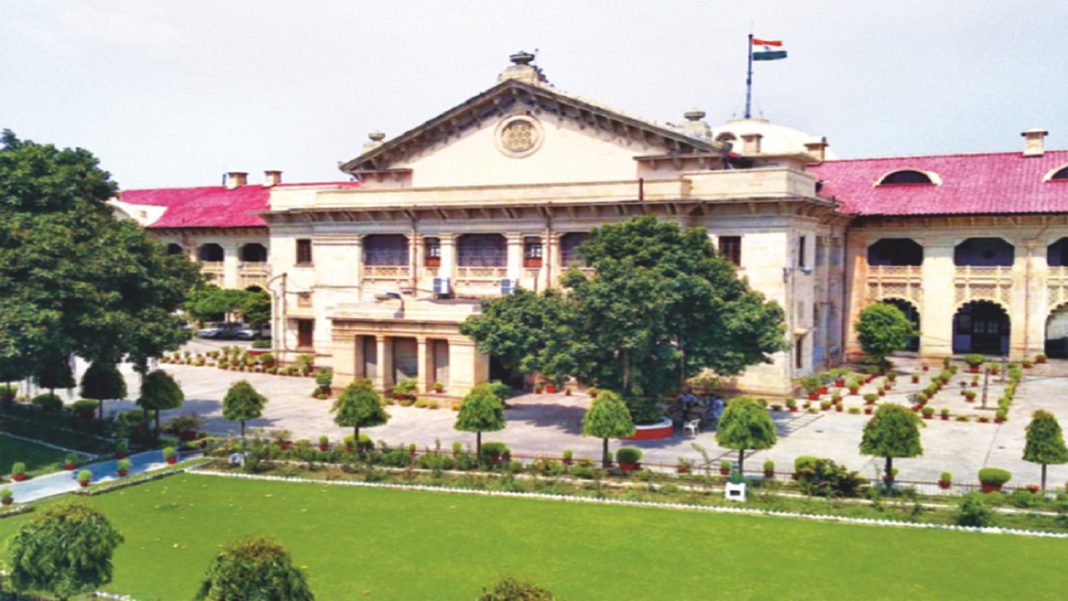The Allahabad High Court has granted four additional weeks to the Central government, the Ministry of Information and Broadcasting, the Central Board of Film Certification and the Al Jazeera Media Network Private Ltd to file their counter affidavit on a Public Interest Litigation, which challenged the broadcast/release of documentary film ‘India….Who lit the Fuse?’ in the country.
The Bench of Chief Justice Pritinker Diwaker and Justice Ashutosh Srivastava further directed the Union of India and the Ministry on Friday to take appropriate measures to ensure that the movie was not allowed to be telecast/broadcast unless its contents were examined by the authorities, and necessary certification/authorisation was obtained from the competent authority.
Earlier on June 13, the High Court had restrained the Qatar-based international media network from telecasting/broadcasting/releasing the documentary in India.
The Division Bench of Justice Ashwani Kumar Mishra and Justice Ashutosh Srivastava had passed this order while hearing a PIL filed by social activist Sudhir Kumar.
The petitioner approached the Court essentially with the prayer to restrain respondent no 5 (Al Jazeera Media Network Private Ltd) from telecasting/broadcasting/releasing in India the Film/ Documentary. He further sought ban on the fifth respondent.
Prayers were also made to command the respondents 1 to 3 i.e Union of India, Ministry of Information and Broadcasting and Central Board of Film Certification to review and certify the Film in question before its broadcast by the fifth respondent.
The plea sought an enquiry into the credentials of the documentary in question and the fifth respondent as it had the potential to cause disharmony amongst the citizens and threaten the integrity of Nation.
The writ petition contended that the documentary, if released/broadcast, was likely to create hatred amongst different religious denominations and thereby destroy the secular fabric of the Indian State. It also had the potential to create social unrest and disturb the public order, decency and morality.
As per the plea, the fifth respondent was well aware that India is a democratic nation built on the guiding principles of secularism, fraternity and dignity for all individuals and in case a film such as this was allowed to be broadcast/telecast, it was likely to endanger the fraternity that existed between the country’s religious communities.
The petition alleged that though the fifth respondent was only a news organisation, it has exceeded its ambit so as to broadcast films, position as investigations on its news channel with the singular intention of creating distress and endangering public order in the country.
Kumar submitted that he has reliably learnt from print and social media reports that the movie depicted the Muslim minority as living with a sense of fear and presented a disruptive narrative creating a sense of public hatred, which was far from reality.
The petitioner asserted that the film negatively portrayed the political functionaries of Indian State and projected them as acting detrimental to the interest of minorities.
He said the documentary purposefully sought to create a rift between India’s largest religious communities through its disruptive narrative and create a sense of public hatred. It was also averred that the film proposed to publicise the distorted versions of facts with an intent to create disharmony amongst the citizens of the country, who belonged to different religious denominations.
The High Court noted that Al Jazeera had acted in a partisan manner in the past and was banned by several nations. It was banned for five days in 2015 in India for publishing vexatious and misleading information about the political map of India, showing integral parts of India to be parts of China and Pakistan. The fifth respondent has also been penalised with imposition of cost of Rs 10 lakh by the Delhi High Court on February 13, 2023 for divulging the identity of a rape victim.
The Counsel for the petitioner submitted that though the Constitution of India guaranteed fundamental right of freedom of speech and expression under Article 19 (1) (a) of the Constitution, the same was subject to reasonable restrictions specified in Article 19 (2) of the Constitution of India.
Article 19 (2) provides that the freedom of Speech and expression shall remain subject to the operation of any existing law, and not prevent the State from making any law, in so far as such law imposes reasonable restrictions on the exercise of the right conferred by the said sub clause in the interest of sovereignty and integrity of India, security of the State, friendly relations with foreign States, Public order, decency or morality or in relation to contempt of Court, defamation or incitement to an offence.
Attention of the Court has also been invited to Section 69A of the Act of 2000 as well as Section 19A of the Act of 1995 which vests jurisdiction with the Central Government to prohibit broadcast of any content which has the potential of overreaching the reasonable restrictions specified under Article 19 (2) of the Constitution of India. It is emphatically submitted that no certificate has yet been obtained by the fifth respondent for broadcast of the film in question from the competent authority under the applicable enactments.
According to the petitioner the statutory authorities created under the aforesaid enactments have the responsibility to screen any such content before it is broadcast so that the mischief referred to under Article 19 (2) of the Constitution of India is adequately curtailed.
With reference to various averments made in the writ petition it is, therefore, urged that that the broadcast of the aforesaid film has the potential of creating grave damage to the public order and social order and unless the Court interferes in the writ petition and directs the authorities to examine the contents of the film before its release/ broadcast, in any form, it may cause irreparable damage to the society at large and the Indian State.
(Case title: Sudhir Kumar v UOI & Ors)


